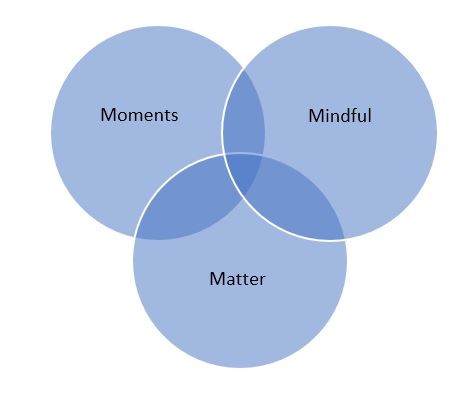This post focuses on the uplifting affect and effect of compliments. I used the title of ‘catch and celebrate’ as this practice requires a desire and some work on our part to actually notice what we might compliment and to then celebrate the same.
As to how many different ways there are to compliment someone … who knows? “I like your funky dress.” – “Thanks for coming out to have lunch ,.. I always learn so much from your insightful perspectives.” – “What a terrific idea … I love it!” And in many respects it doesn’t really matter how many different ways there are … as even just the one compliment can be powerful and help someone feel special. Within this post I hope you gain at least one of these ways and as per the photo at the top of this post … be the reason someone smiles today! and help make a positive difference to your team mates and other people.
Our intention behind the compliment
Giving a compliment is best when it comes from a sincere, thoughtful and genuine intention. And depending on our level of familiarity with the person there a few commonsense guidelines to help keep us on the appropriate side of ‘that line’. Such guidelines include showing respect, being professional, and ensuring the compliment is appropriate, relevant and courteous. It’s a good idea when thinking about and then giving compliments to bring into play some of those good ole time manners.
To help, I’m sharing the following model I developed and which I use as a mini-checklist:
Compliment in the moment if possible.
Be mindful of what is appropriate, of the contex whilst being respectful. Be in their world as much as in your world.
Make the compliment matter by focusing on what is important and relevant to them.
Compliment what you see and hear
One way to do this is by paying attention to the little things, and when you do share the added benefit of showing that you actually make the effort to notice what is particular and relevant to that person, This carries more value than just going for the generalities (the later being much easier to do). As an example, on a recent canyoning trip with some friends we stopped for an early morning hot drink, afterwhich a friend of mine collected the mugs and plates and returned them to the counter … a gesture that was acknowledged and appreciated by everyone including staff.
Beyond what you see and hear, you can extend compliments to smells. For example, I love that spicy scent of your cooking … I can’t wait to taste it.
(A note of caution is to avoid compliments with overt or implied sexual inuendos – even if you are in a ‘courting context’ there are more respectful, subtle and endearing characteristics of both sexes without needing to use ‘grossly generalised’ comments which you might think are compliments but more likely to be offensive.)
Compliment on feelings
Appreciate the feelings that are evoked by a persons behaviour … for example,
- I admire how you know just when to ‘check in’
- You have an amazing ability to see through differences and value the underlying depth of friendship we have.
- Whenever I’m struggling I appreciate how you’re able to give me a respectful kick up the backside that gets me going again.
Try yes and language … when you want to compliment someone’s effort
When someone comes to you with an idea, compliment their initiative by using ‘yes and’ language … for example;
- I like the idea of inviting our stakeholders to our meetings but we have privacy issues.(yes but)
- I like the idea of inviting our stakeholders to our meetings and believe that this might be an opportunity to provide some fresh insights. (yes and)
Remember something about someone
Imagine you’re at a work gathering when a few new people join the cohert and share in the conversation. You make the effort to remember the names of these individuals, and by doing so are able to say farewell to each person by name … a gesture that most people value. Using this same example, lets make the assumption that you are also able to remember additional details such that you can bring these into a conversation next time you meet – e.g. how did you go with that competition – when we last met it sounded like you were training quite hard.
(as a general guideline … high context cultures such as Mediterranean and Asian cultures like small talk as they gain meaning from the surrounding context as much as the content of the meeting / low context cultures such as some European Countries like to get ‘straight to business’)
Focus on effort and what the other person is able to control
There you are … in the corridor of an office building … catching your breath from a hostile meeting that has just finished when you bump into the facilitator. A possible compliment might be:
I admired how you remained focused on the task of reconcilling differences despite the apparent hostility of a few participants. You kept your cool and ensured that the meeting achieved what it set out to.
Or perhaps someone is still on their journey to achieving a final goal – they are putting in a heculean effort day after day despite challenges and set backs. Acknowledging their effort on such as a journey is often just as important, if not more important, than the accolades they receive at the finish line.
Think of how coaches and supports jeer their team and encourage them to keep going. In her TED presentation the record setting triathlete Minda Dentler talks of how her ‘friends and family were ready at their stations to talk me up that hill” (with reference to a significantly challenging part of the ironman course she was in the progress of completing).
Compliment on what’s important to them
Effective conversation skills play a big part in this arena of compliments as they help in getting to know what’s important to people … which then provides a relevant reference bank we can draw from when wanting to give compliments.
This can include activities they might be involved with, a trait, a quality, and/or a material possession such as a car (especially if it represents years of savings and a sense of pride). It can also include their children or other family members – e.g. I love how your children are totally accepting of all the other kids … stepping right in and playing without hesistation.
Be sure the compliment is about them rather than the ‘object’ / ‘other person’. For example, I admire how you’re able to keep your car as clean as you do and how you take so much pride in your car … versus I like your car.
Keep it about them
Keep the compliment focused on the other person. Even if they try to steer it toward you acknowledge this but refrain from extending and making it about you. This can be tricky as you also do not want to shut them from the opportunity to in turn share with you. Avoid being the person who loves things being all about them – as per the old saying … “Well enough talking about me … let’s talk about you … What do you think about me?”
And do not expect anything in return. You are doing this because you genuinely want to compliment … not because you want to receive something … if that’s your intention then use questions.
Help them receive the compliment
Some people struggle with compliments … and in dealing with their discomfort they might respond with a reply such as ‘nah, it’s was nothing’ – ‘it was just something I made up’ – ‘it was a team effort, I really didn’t do much‘.
People can be so darn good at deflecting compliments, and even though you express the compliment as a gift, do not think that a deflection means they didn’t value this gift. For some cultures it can evoke a sense of shame to receive a compliment (more in a discomfort than adversarial way).
If you sense discomfort one way to help is to follow the compliment with a question. For example, I admire how you are able to control such a diverse range of opinions and perspectives. Truly amazing. How did you learn to do that?
Making a positive difference
The empowering quality of compliments is that you give a voice to that which is good. They helps others notice, see and experience good things. They help show the other person that they’re worthy of praise and by doing so help to build their self-confidence. And how kewl if we can help to pay forward such good vibes.
They can also help enrich conversations and deepen connections. And within the workplace, research has shown that compliments have the power to not only improve performance but increase the sense of meaning people associate with their work.
The practice of giving compliments is extremely important to a friend of mine, Peter Merrett. Peter recently launched his new website www.petermerrett.com on which he listed a string of awards. Some reflect a collective effort and others a thank you for how wonderful Peter helped others feel – given the generosity of spirit displayed by Peter, it was little wonder that others wanted to say thanks in return.
Moments
Within life they say it’s the moments that take our breaths away which help to give life meaning. And I believe an easy, powerful and affective way to create such moments is through the sharing of compliments.

